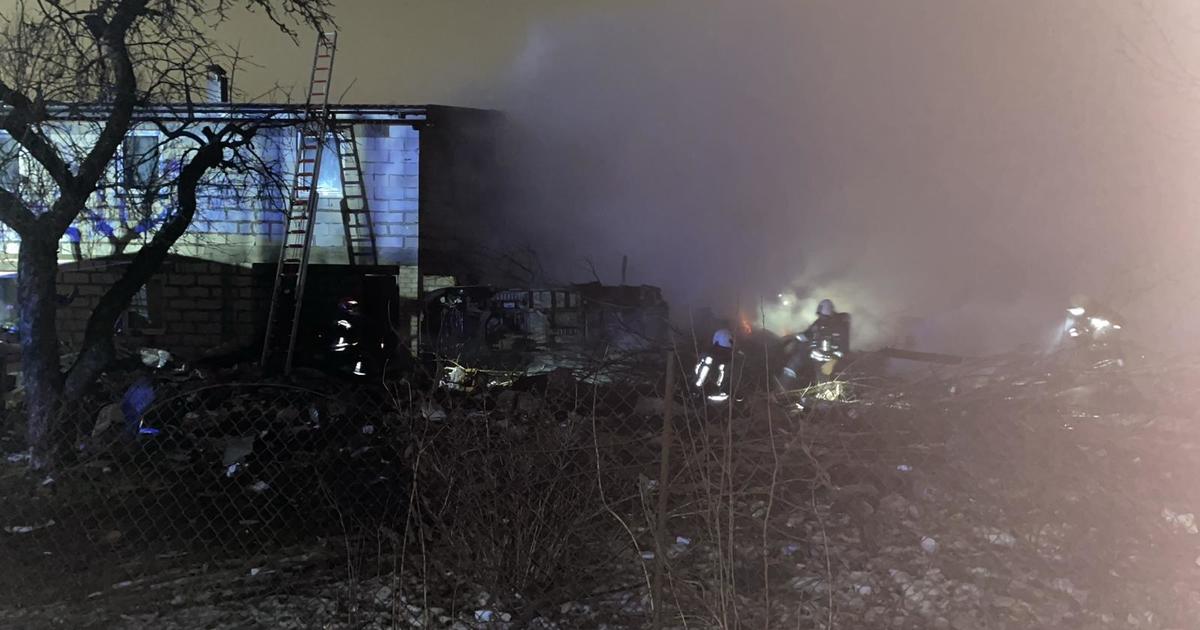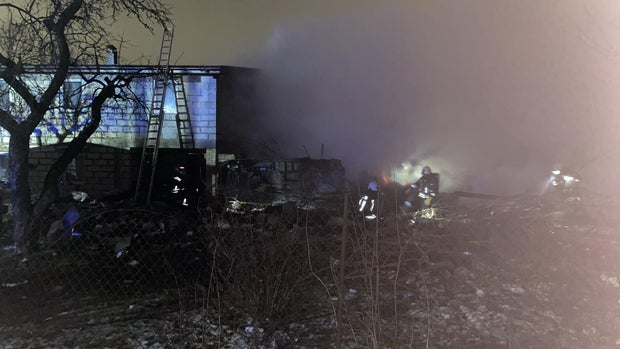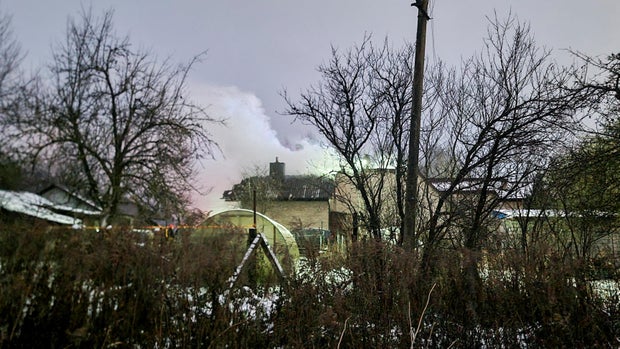Vilnius, Lithuania — A DHL cargo plane crashed early Monday near the airport in Lithuania’s capital, killing one person, authorities said as they searched for clues to what caused the tragedy. Lithuanian officials, who in the past weeks have been investigating incendiary devices allegedly sent on Western-bound cargo planes, stopped short of linking the crash with that investigation.
“It is premature to associate it with anything or to make any attributions,” State Security Department chief Darius Jauniskis told reporters.
Images from the crash site in the capital Vilnius showed debris from the plane and packages on fire scattered across the residential area, which had been cordoned off by the emergency services.
Lithuania Fire and Rescue Service/Anadolu/Getty
“We cannot rule out the case of terrorism. We have warned that such things are possible, we see an increasingly aggressive Russia… but we cannot make any attributions or point fingers yet,” Jauniskis said.
U.S. and European law enforcement agencies have been working together for weeks to investigate whether incendiary devices that detonated in July at DHL logistics hubs in Germany and Britain were part of a larger operation directed by Russian military intelligence agencies, the highest level of the Russian government, or by outside individuals acting in the interests of Russia, a source familiar with the matter confirmed to CBS News in early November.
According to the Lithuanian police, the plane, flying from the eastern German city of Leipzig, skidded several hundred yards before hitting the residential house that was set on fire, along with smaller buildings and a car.
Renatas Pozela, head of the firefighting and rescue department, said one person from the plane’s four-member crew died in the crash that happened as the plane came in to land in Vilnius.
Andrius Sytas/REUTERS
Head of National Crisis Management Centre Vilmantas Vitkauskas said the residential building was successfully evacuated, with its 12 residents moved to safety.
German logistics company DHL said the cargo aircraft was operated by its partner SwiftAir and had made an “emergency landing” in Lithuania.
“We can confirm that today, at approximately 4:30 am CET, a Swiftair aircraft, operated by a service partner on behalf of DHL, performed an emergency landing about one kilometer [about half a mile] from VNO Airport [Vilnius, Lithuania] while en route from LEJ Airport [Leipzig, Germany] to VNO Airport,” it said in a statement.
Lithuanian police Chief Arunas Paulauskas said investigators had gone to the hospital to talk to the pilots.
It was not immediately clear what caused the crash.
Earlier this month Lithuania said it had carried out arrests as part of a criminal probe into the sending of incendiary devices on Western-bound planes.
Polish and Lithuanian media said the devices, including electric massagers implanted with a flammable substance, were sent from Lithuania to the U.K. in July and could be behind a lorry fire outside Warsaw.
U.K. anti-terrorism police said last month that they were investigating how a parcel burst into flames at a depot earlier this year, after a similar case in Germany that officials blamed on Russia. The Lithuanian president’s chief security advisor said this month that Moscow had been behind the incidents.
“We know who the source of these operations is. It is Russian military intelligence,” Kestutis Budrys told Ziniu radio. “We cannot let this go unanswered as it will only escalate into the new kinds of actions.”
Poland and Lithuania, both NATO members bordering Russia who have been major allies of Ukraine amid that country’s efforts to fend off Russia’s full-scale invasion, have frequently warned about Russian-inspired sabotage on EU soil.
The 2025 Homeland Threat Assessment published at the end of October said the U.S. continues to be concerned about threats to aviation and air cargo systems, including the “potential use of the air cargo supply chain to ship concealed dangerous and potentially deadly items.”
The U.S. Transportation Security Administration said in a statement in October that it was continually adjusting its security posture as necessary and would “promptly share any and all relevant information with our industry partners, to include requirements and recommendations that help them reduce risk.”
“Over the past several months, as part of a multi-layered security approach, TSA worked with industry partners to put additional security measures for U.S. aircraft operators and foreign air carriers regarding certain cargo shipments bound for the United States, in line with the 2021 TSA Air Cargo Security Roadmap,” the TSA’s statement noted at the time.



Leave a Reply